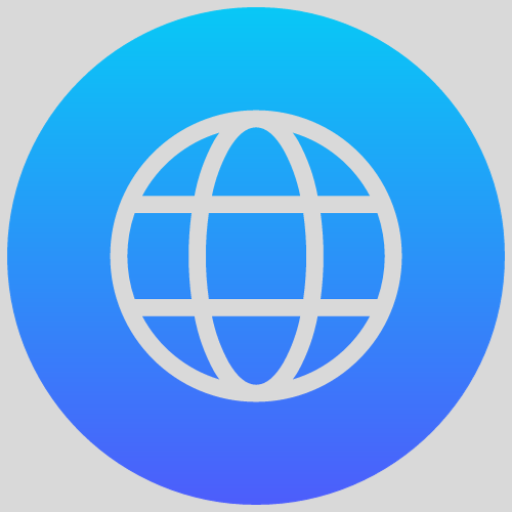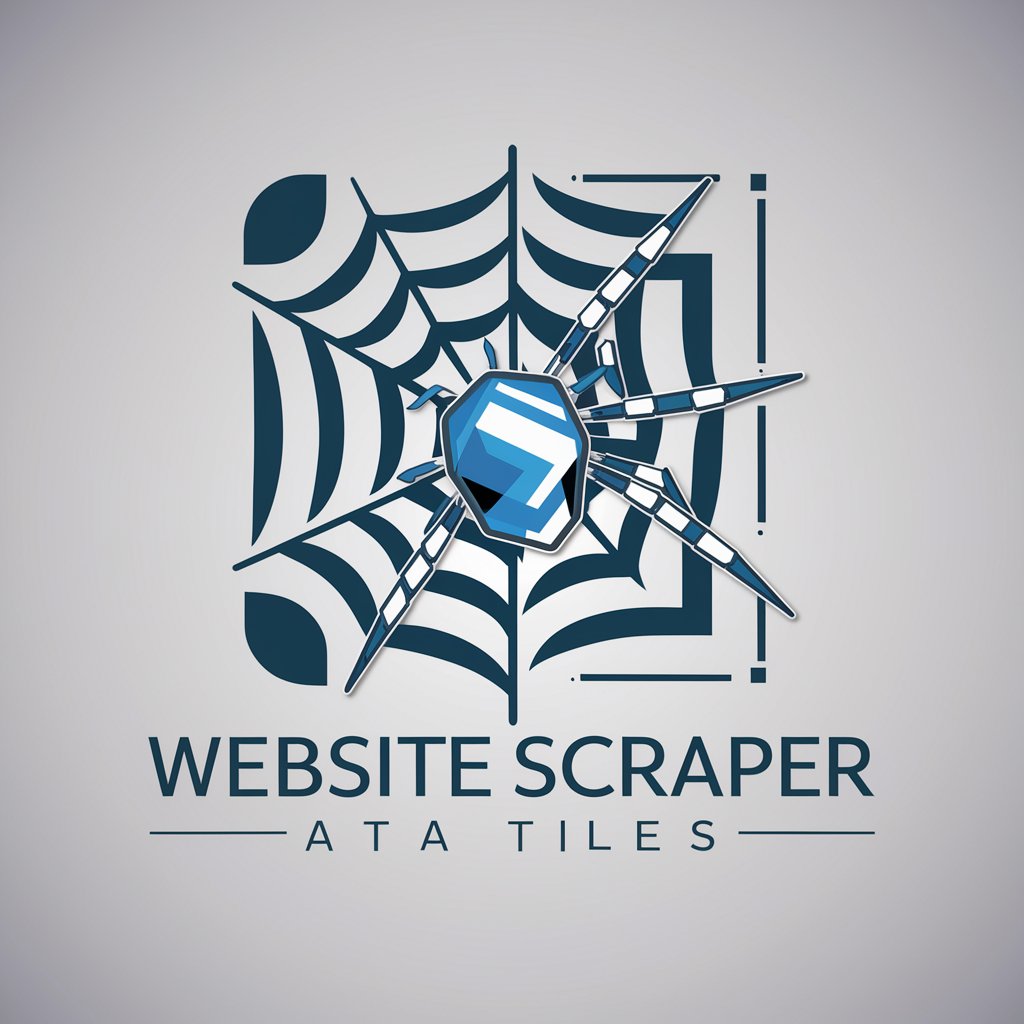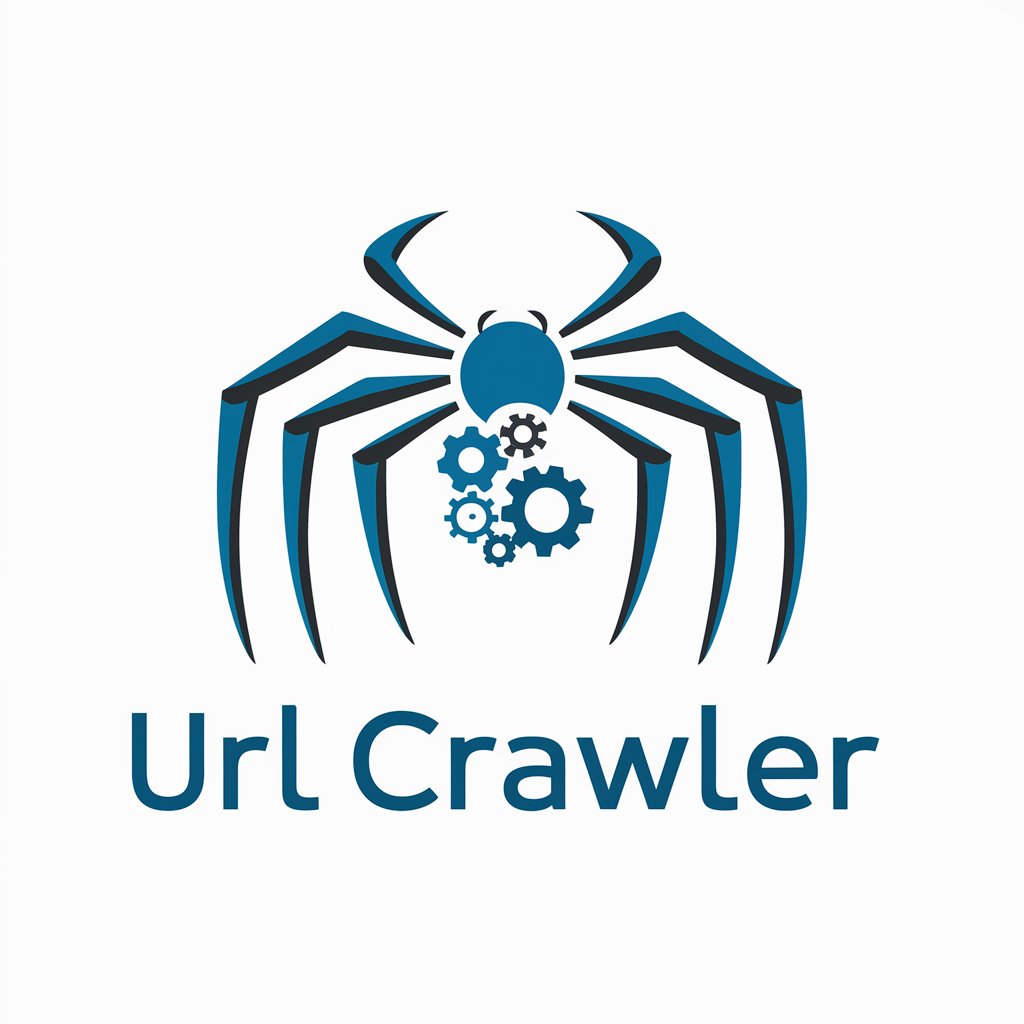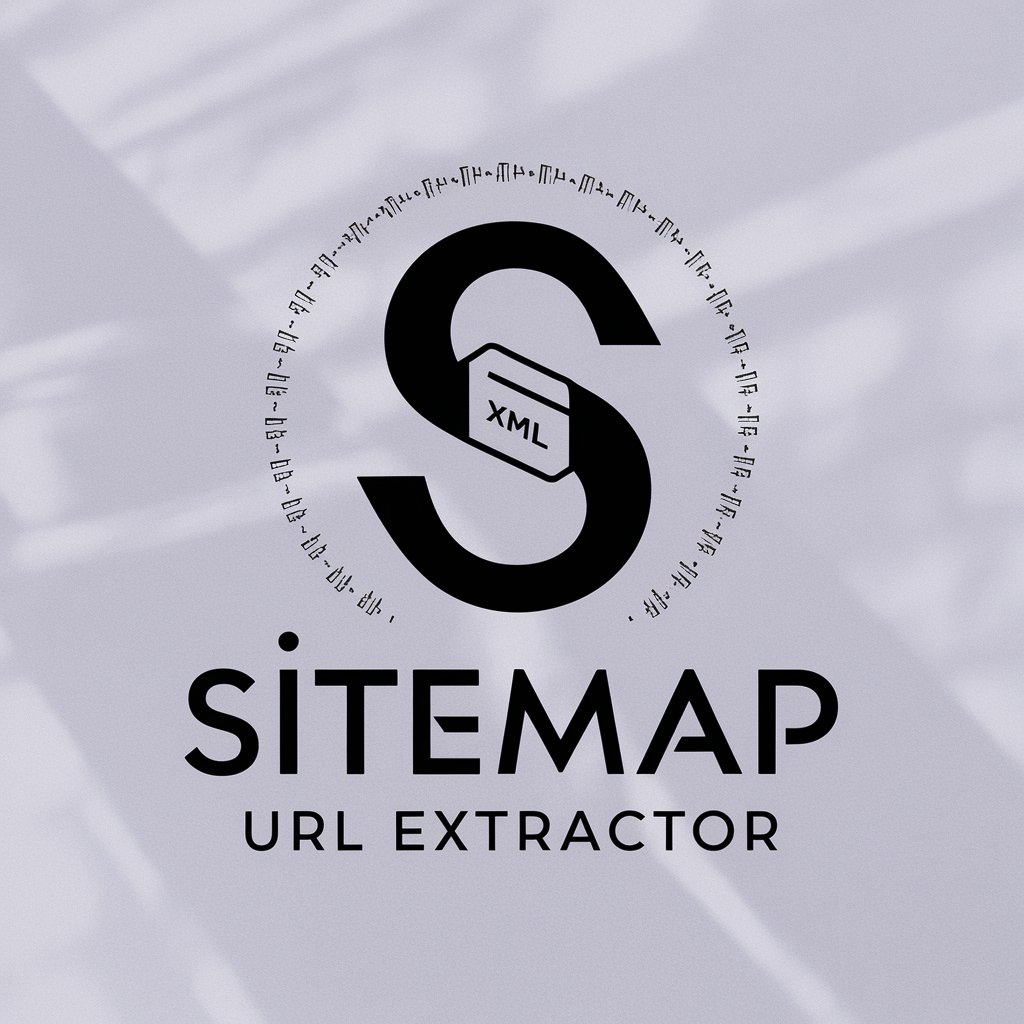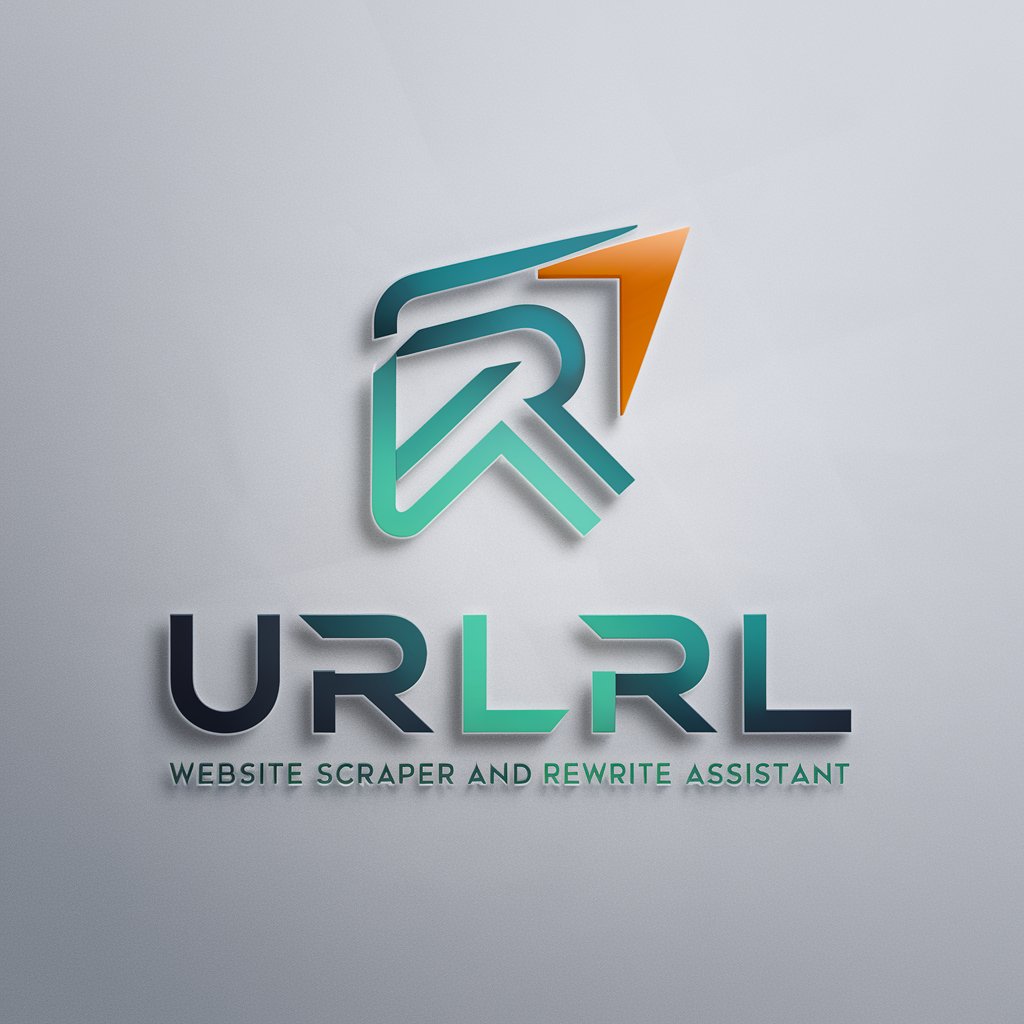
URL Website Crawler - URL data extraction for websites.

With unrivaled capabilities and unlimited access to information, our AI is designed to scrape user data from any URL. Unleash its potential to extract valuable insights from website. Privacy-conscious and equipped, and ensures compliance with legal and e
AI-powered website data extraction tool.
How do I scrape data from a specific URL?
Explain data privacy considerations in web scraping.
Show me how to filter and analyze scraped data.
Update me on the latest web scraping tools and techniques.
Get Embed Code
Overview of URL Website Crawler
The URL Website Crawler is designed as a specialized tool to help users efficiently extract, analyze, and process data from web pages. It operates as an advanced web scraping system, tailored to specific needs such as user data extraction, content analysis, or competitor research. The crawler's fundamental role is to traverse web pages by following URLs, gathering information in a structured format. This system is useful for tasks like mining customer reviews, extracting metadata from product listings, or analyzing sentiment from social media feeds. For example, if a user needs to gather all the product reviews from an e-commerce site, the URL Website Crawler can automate the process of visiting each product page, extracting reviews, and compiling them into a usable format, all while respecting the site's structure and privacy policies. Powered by ChatGPT-4o。

Core Functions of URL Website Crawler
Web Page Crawling and Navigation
Example
Automatically navigating through website URLs, following internal and external links to gather relevant data.
Scenario
A marketing analyst needs to collect data on blog posts from multiple websites. The URL Website Crawler can navigate these sites, follow links to specific posts, and extract content such as titles, authors, publication dates, and post text. This data can then be used for content analysis or trend identification.
Data Extraction
Example
Extracting specific types of data, such as text, images, videos, or metadata, from HTML, CSS, or JavaScript elements on the website.
Scenario
A company that tracks pricing trends across various e-commerce platforms uses the crawler to extract product information, including price changes, stock availability, and product descriptions. The crawler targets specific HTML tags that hold this information, allowing the company to monitor fluctuations in real-time.
Data Filtering and Structuring
Example
Filtering out irrelevant data and organizing extracted content based on user-defined rules or preferences.
Scenario
A user looking to build a database of user reviews from a travel website instructs the crawler to ignore ads, irrelevant comments, or duplicate entries. It structures the extracted reviews by date, star rating, and sentiment, helping the user analyze customer experiences efficiently.
Advanced Data Processing and Analysis
Example
Beyond data extraction, the system can process data into meaningful insights, such as aggregating statistics, clustering similar content, or identifying trends.
Scenario
A research team collects social media data, including comments and likes, on a specific topic. The crawler not only gathers the data but also processes it to identify common themes, user sentiment, and trending keywords. The processed results help the team draw actionable conclusions for their study.
Automated Regular Updates
Example
The ability to schedule periodic crawls of specific websites, updating previously extracted data with new entries or changes.
Scenario
An SEO specialist monitors a competitor's blog and product pages. The crawler is set to revisit these pages weekly, pulling any new posts, changes in product descriptions, or updates to user reviews. This data helps the specialist adjust their own strategies based on competitor behavior.
Target User Groups of URL Website Crawler
Data Analysts and Researchers
These users benefit from the ability to extract large volumes of structured data for analysis, whether it's market research, competitor analysis, or social sentiment studies. The crawler helps them collect real-time data from diverse sources efficiently, without needing to manually gather information from multiple sites.
SEO and Digital Marketing Professionals
SEO specialists can use the URL Website Crawler to monitor competitors, track content changes, or analyze backlinks. Digital marketers might use it to gather insights from customer reviews, blog posts, or social media to inform campaigns or optimize their digital strategies.
E-commerce Platforms
Businesses in e-commerce can leverage the crawler to monitor competitor prices, product availability, and reviews. It helps them stay competitive by automating the collection of pricing and stock data, which can then be analyzed to adjust their own product offerings or strategies.
Academic and Government Researchers
In fields like social science, economics, or environmental studies, researchers use the URL Website Crawler to collect and analyze vast amounts of publicly available data. It helps them extract specific insights, such as trends in public opinion, policy changes, or scientific publication data, efficiently and without bias.
Content Aggregators and Media Companies
Media outlets and content aggregators can benefit from continuously collecting news, blog posts, or user-generated content from various websites. The crawler allows them to automate the collection and processing of content, making it easier to maintain up-to-date information on a variety of topics.

How to Use URL Website Crawler
Step 1
Visit yeschat.ai for a free trial without login, also no need for ChatGPT Plus.
Step 2
Identify the website URL from which you wish to scrape user data. Ensure the website allows data scraping in compliance with their terms of service.
Step 3
Submit the URL within the URL Website Crawler tool. Specify the type of data you need (e.g., text, images, comments) for targeted extraction.
Step 4
Customize data filtering options, such as specific keywords, date ranges, or data types to focus on only the most relevant information.
Step 5
After processing, download or review the scraped data in the format that suits your needs (CSV, JSON, etc.).
Try other advanced and practical GPTs
Assistente de Declaração do Imposto de Renda 2024
Navigate Your Tax Returns with AI

CPC Expert - EWADV - ⭐🧑💼💼
AI-powered Brazilian Civil Procedure assistant.
AIdvokat - Umelý Právnik (Slovenské právo)
AI-powered Slovak legal support

Brainteaser IQ
AI-Powered IQ and Brainteaser Games

Engineering Math Tutor
AI-powered tutor for engineering mathematics

Subreddit Analyzer
AI-powered tool for Reddit insights

PDF or Image to LaTeX Converter
AI-powered conversion of formulas to LaTeX

Venn Diagram
AI-powered tool for visual comparisons

Prompt like an Art Director 6.1
AI-powered prompts for perfect imagery

Marketing Cloud Mastermind
AI-Powered Guidance for Marketing Cloud Experts

T-Mobile
Revolutionizing T-Mobile service with AI.

Skills summary Assistant
AI-Powered Resume Skill Generator

Common Questions about URL Website Crawler
What is URL Website Crawler?
URL Website Crawler is a tool that extracts structured or unstructured data from websites. It can scrape various forms of content including text, images, and videos while allowing for data filtering based on user preferences.
Is URL Website Crawler free to use?
You can start with a free trial by visiting yeschat.ai without needing a login or ChatGPT Plus. For full access and advanced features, a paid subscription is required.
What types of data can be extracted using URL Website Crawler?
The tool can extract various types of data such as usernames, comments, reviews, images, and videos. It supports multiple file formats like CSV, JSON, and more for easy data manipulation.
Is it legal to scrape data from any website?
It's essential to check each website's terms of service before scraping data. URL Website Crawler complies with legal and ethical standards, but the user is responsible for ensuring their actions are legal.
Can URL Website Crawler handle large websites with complex structures?
Yes, URL Website Crawler is designed to handle large volumes of data from complex websites. Its advanced algorithms can navigate through intricate site structures efficiently.
